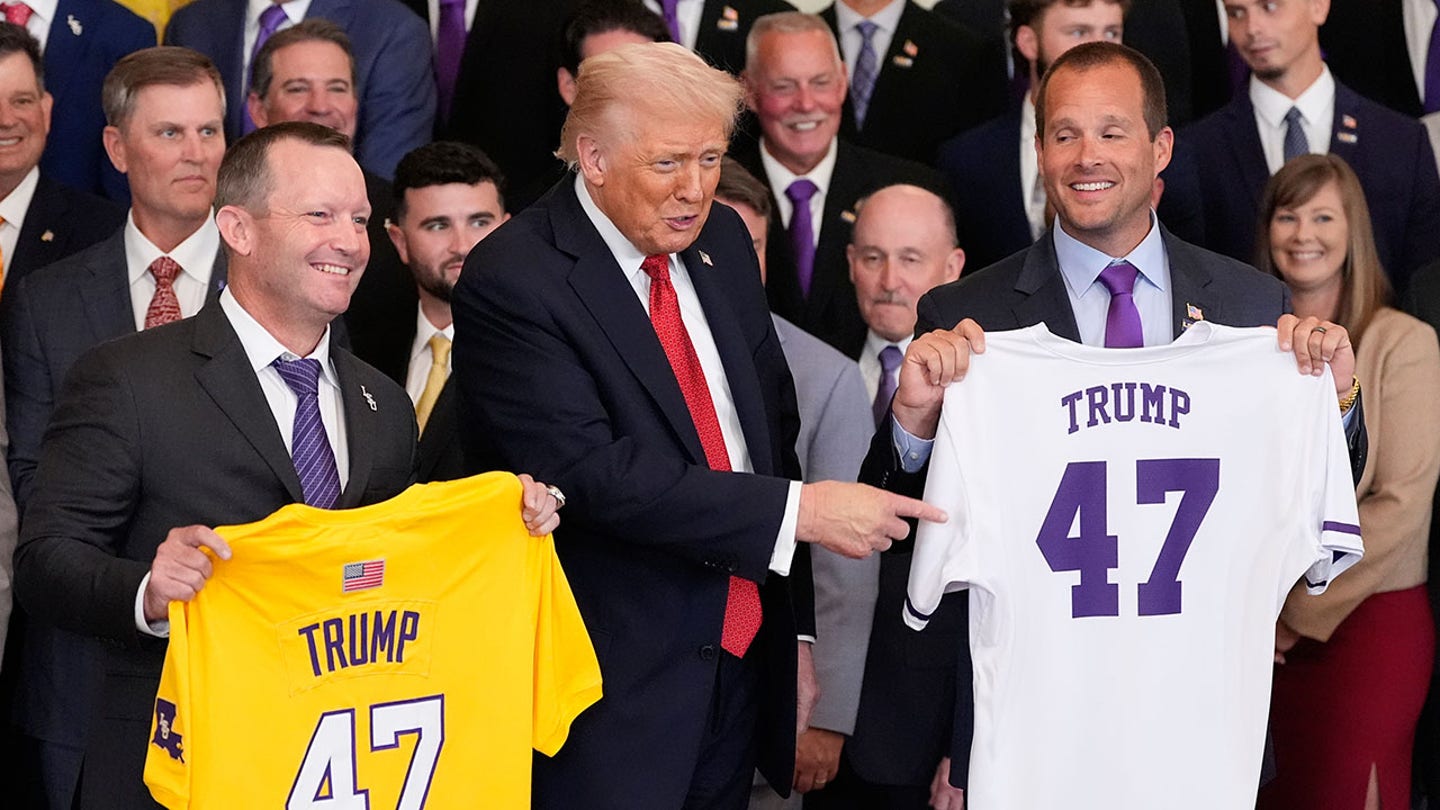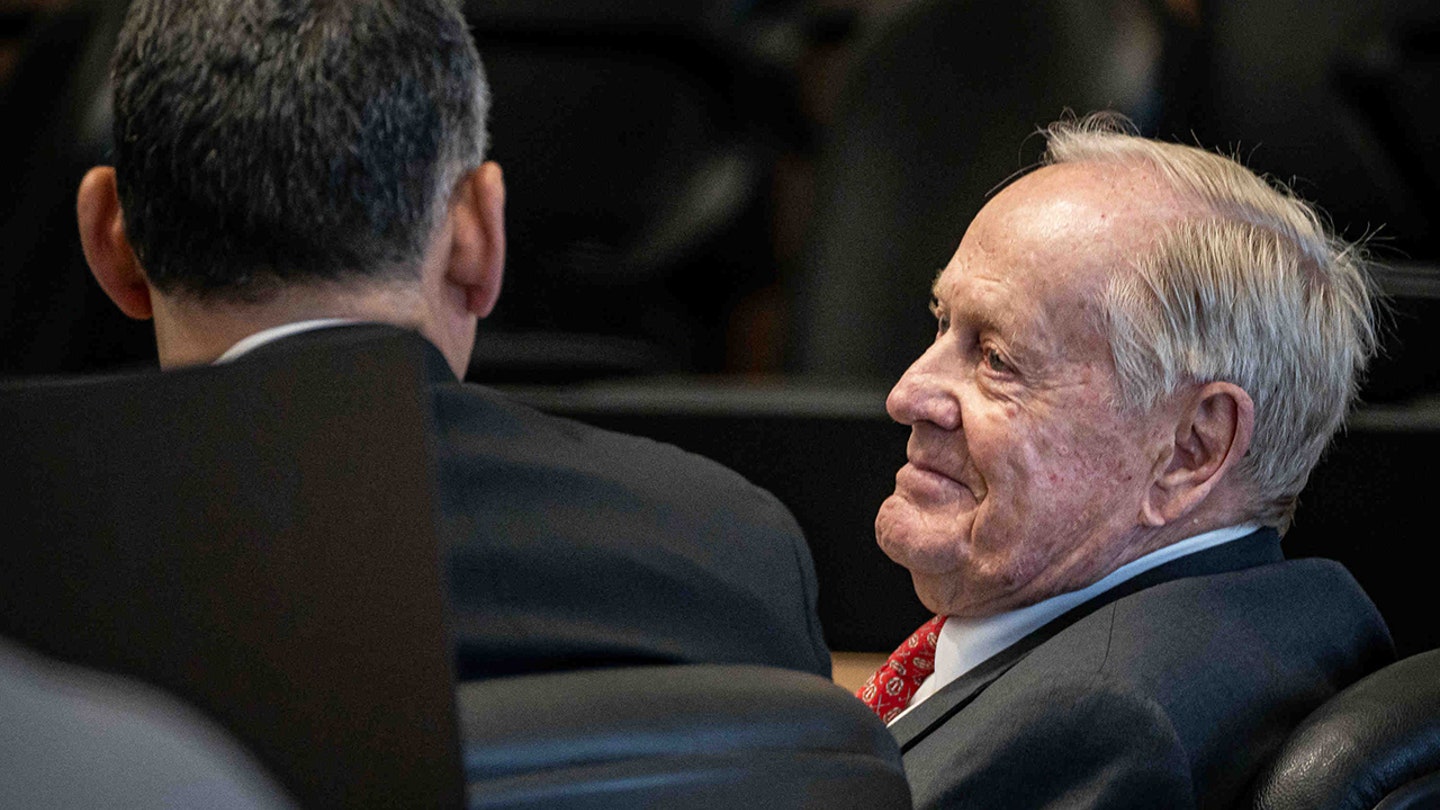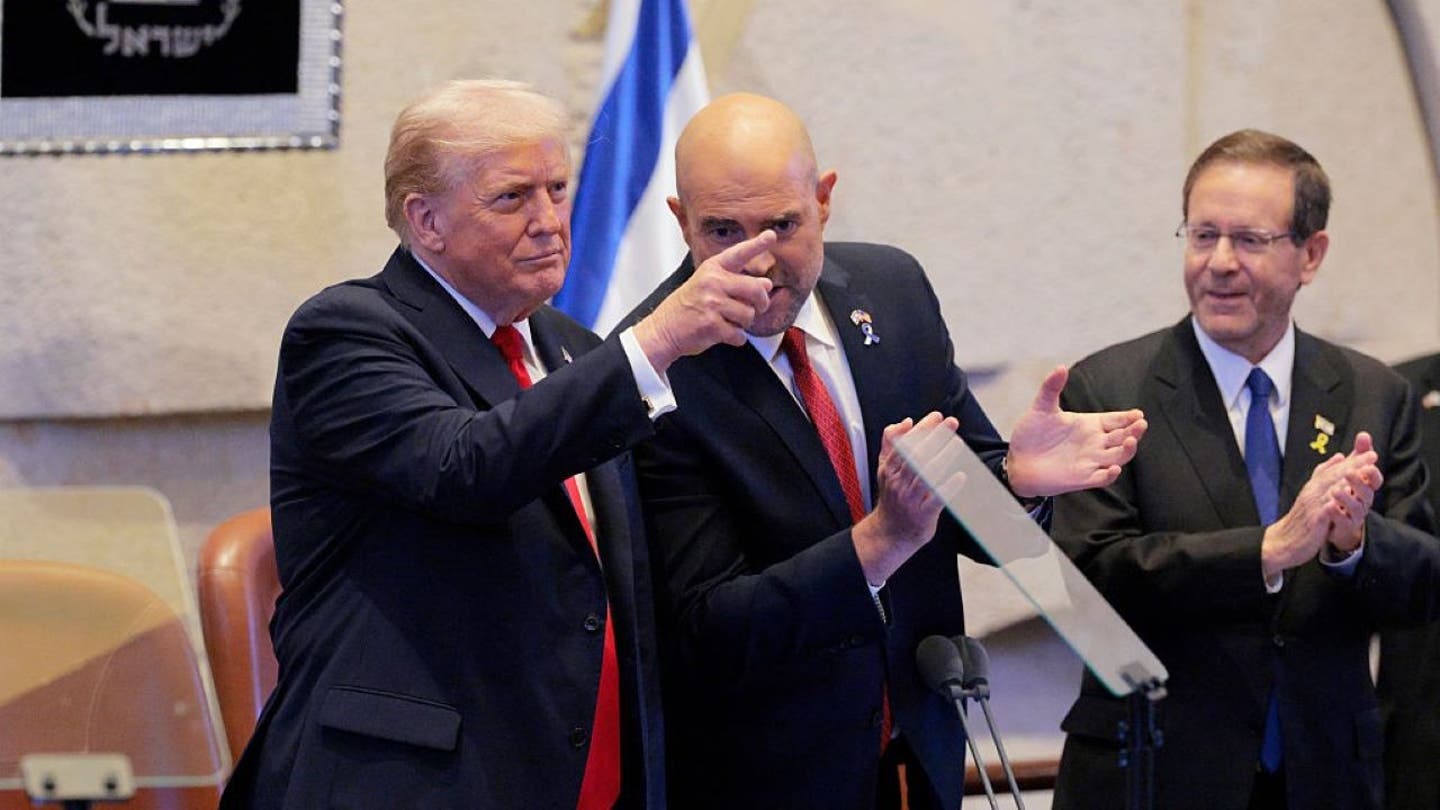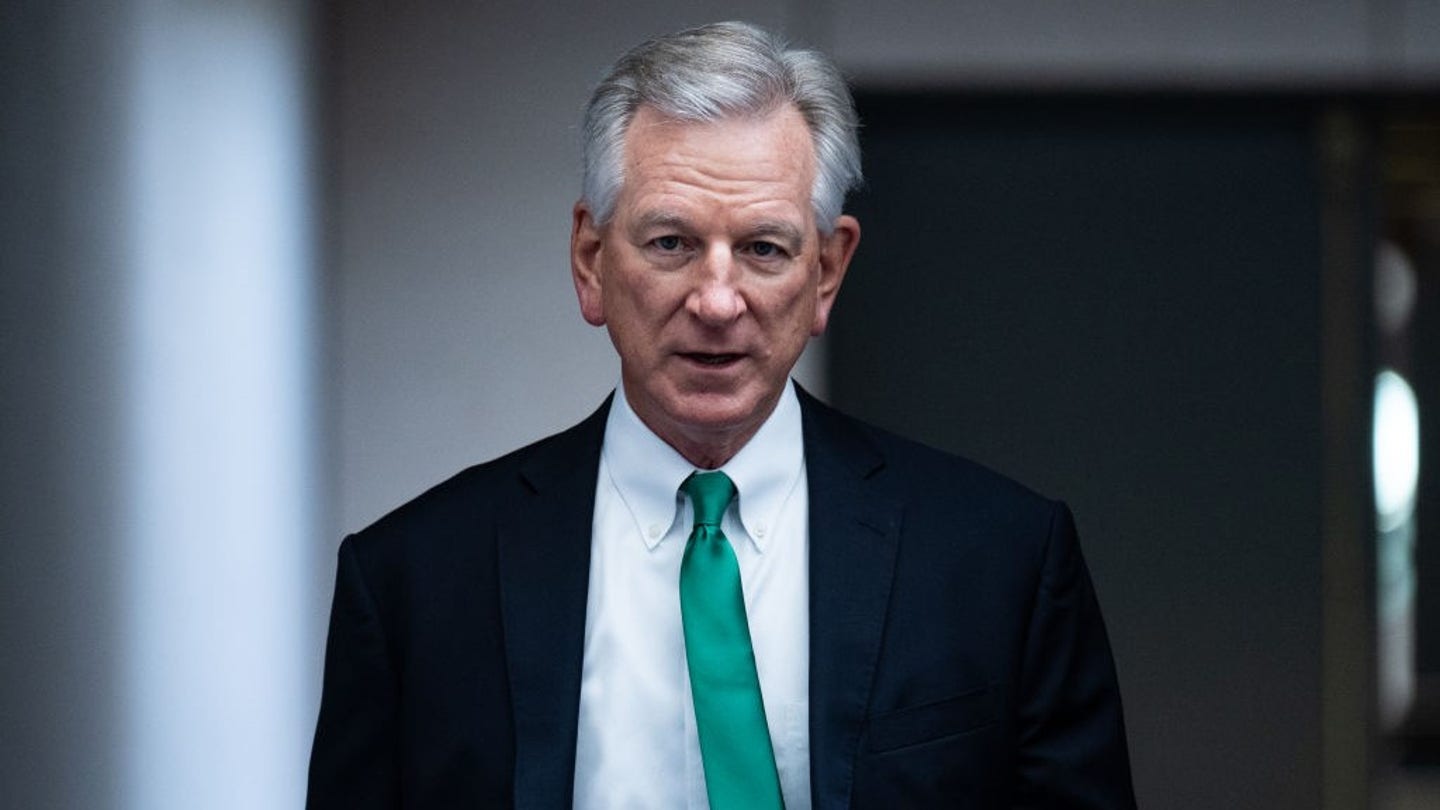
Former ESPN employee says middle school daughter faced 'an obviously naturally born boy' in basketball game
Entities mentioned:
- Sam Ponder: Righteousness, Moral outrage, Determination
- Transgender Athletes: Recognition, Competitive spirit, Self-respect
- Donald Trump: Power, Control, Influence
- New York City: Unity, Freedom, Wariness
Article Assessment:
Credibility Score: 65/100
Bias Rating: 75/100 (Lean Right)
Sentiment Score: 30/100
Authoritarianism Risk: 55/100 (Mixed/Neutral)
Bias Analysis:
The article leans right, primarily quoting conservative voices and framing the issue from their perspective. It presents transgender participation in sports as problematic without offering counterarguments or scientific evidence.
Key metric: Gender Equality in Sports
Let me tell you something - this story is a GAME-CHANGER in the world of youth sports! Sam Ponder has stepped up to the plate, swinging for the fences on the hot-button issue of transgender athletes in girls' sports. She's not just talking the talk, folks - she's walking the walk as her own daughter faces this challenge on the court! This isn't just a pickup game we're talking about - it's a full-court press on the future of fair play in women's athletics! The ball is in New York City's court now, and they're playing defense without a playbook. Meanwhile, President Trump is running a full-court press with his executive order, but some states are pulling a fast break, dodging his defensive line. I'm telling you right now, this is the kind of fourth-quarter drama that could change the game for generations to come!

Giants' Russell Wilson calls Broncos head coach Sean Payton 'classless' after postgame jab
Entities mentioned:
- Sean Payton: Competitive spirit, Power, Control
- Russell Wilson: Pride, Self-respect, Revenge
- Jaxson Dart: Ambition, Determination, Recognition
- Denver Broncos: Competitive spirit, Professional pride, Legacy
- New York Giants: Competitive spirit, Determination, Legacy
Article Assessment:
Credibility Score: 75/100
Bias Rating: 50/100 (Center)
Sentiment Score: 45/100
Authoritarianism Risk: 20/100 (Strongly Democratic)
Bias Analysis:
The article presents both sides of the conflict between Payton and Wilson, giving equal space to their perspectives. It also provides context and background information without favoring either party.
Key metric: NFL Team Performance
Let me tell you something, folks - this is a FOURTH QUARTER SHOWDOWN between two heavyweight contenders! We've got Sean Payton, the seasoned coach, throwing jabs at his former quarterback Russell Wilson. It's like watching a championship boxer trying to psych out his old sparring partner! Wilson's not pulling any punches either, hitting back with that 'classless' comment. This is the kind of grudge match that DEFINES careers! Meanwhile, rookie Jaxson Dart is coming off the bench like a clutch player in March Madness, giving the Giants a spark they desperately needed. But don't count out the Broncos - they just pulled off a comeback that would make the '04 Red Sox proud! This is the kind of drama that separates the CHAMPIONS from the PRETENDERS, folks!

LSU baseball coach praises Trump during celebration: 'Nobody works harder for America than you'
Entities mentioned:
- Jay Johnson: Pride, Recognition, Loyalty
- Donald Trump: Power, Recognition, Ambition
- LSU Tigers baseball team: Competitive spirit, Pride, Recognition
- LSU Shreveport baseball team: Competitive spirit, Pride, Recognition
- Mike Johnson: Duty, Recognition, Loyalty
- Steve Scalise: Duty, Recognition, Loyalty
- Brad Neffendorf: Pride, Professional pride, Recognition
Article Assessment:
Credibility Score: 75/100
Bias Rating: 65/100 (Lean Right)
Sentiment Score: 80/100
Authoritarianism Risk: 35/100 (Generally Democratic)
Bias Analysis:
The article leans right due to the positive framing of Trump and emphasis on his work ethic. However, it maintains some balance by focusing primarily on the sports teams' achievements.
Key metric: National Unity
Let me tell you something - this story is a GRAND SLAM for American unity! The LSU Tigers and LSU Shreveport have stepped up to the plate and knocked it out of the park, bringing their championship mentality right into the Oval Office! Coach Jay Johnson's praise for President Trump's work ethic is like a perfect pitch, bridging the gap between sports and politics. This is the kind of team play we need to see more of, folks! It's not just about winning on the field, it's about coming together as a nation. These coaches and players are showing us what it means to have a true championship mindset - one that extends beyond the diamond and into the very heart of our democracy. I'm telling you right now, this is the kind of unity that makes America the undisputed heavyweight champion of the world!

WWE World Heavyweight Championship vacated due to Seth Rollins injury, title match set between top stars
Entities mentioned:
- Seth Rollins: Competitive spirit, Pride, Determination
- Adam Pearce: Control, Duty, Professional pride
- Jey Uso: Ambition, Competitive spirit, Self-preservation
- CM Punk: Ambition, Competitive spirit, Legacy
- The Vision: Power, Control, Influence
Article Assessment:
Credibility Score: 75/100
Bias Rating: 50/100 (Center)
Sentiment Score: 65/100
Authoritarianism Risk: 30/100 (Generally Democratic)
Bias Analysis:
The article presents a balanced view of events, giving equal attention to various wrestlers and storylines. It doesn't favor any particular performer or narrative, maintaining a neutral stance typical of sports reporting.
Key metric: WWE Viewership and Fan Engagement
Let me tell you something, folks - this is a GAME-CHANGER in the WWE universe! The injury to Seth Rollins has thrown the whole championship picture into CHAOS, and we're seeing a real free-for-all as these superstars fight for their shot at glory. It's like we're in sudden death overtime, with Adam Pearce playing the role of head coach, making the tough calls from the sidelines. Jey Uso has stepped up to the plate in a BIG WAY, showing that championship mentality by eliminating his own brother - talk about a power play! Meanwhile, CM Punk is like a veteran quarterback, calm under pressure and ready to lead his team to victory. But don't count out The Vision - they're like that underdog team that everyone overlooks until they're suddenly in the playoffs. This is the kind of fourth-quarter drama that keeps fans on the edge of their seats, and I'm telling you right now, the road to Saturday Night's Main Event is going to be one for the history books!

Jack Nicklaus wins $50 million in defamation case against former company
Entities mentioned:
- Jack Nicklaus: Legacy, Loyalty, Self-respect
- Nicklaus Companies: Control, Greed, Power
- Howard Milstein: Power, Control, Influence
- PGA Tour: Self-preservation, Loyalty, Legacy
- LIV Golf: Competitive spirit, Ambition, Influence
Article Assessment:
Credibility Score: 75/100
Bias Rating: 55/100 (Center)
Sentiment Score: 65/100
Authoritarianism Risk: 20/100 (Strongly Democratic)
Bias Analysis:
The article presents facts from multiple sources and includes quotes from both sides. While it leans slightly favorable towards Nicklaus, it maintains a relatively balanced perspective on the legal proceedings.
Key metric: Professional Sports Integrity
Let me tell you something - this story is RIDICULOUS! We've got a true GOAT of golf, Jack Nicklaus, stepping up to the plate and absolutely CRUSHING it in the courtroom! This isn't just a win, folks, this is a GRAND SLAM victory against his former team that tried to throw him under the bus. Nicklaus showed us he's still got that championship mentality, proving he can dominate not just on the greens, but in the legal arena too. His former company tried to paint him as past his prime, but Nicklaus came out swinging, demonstrating the kind of clutch performance that made him a legend. This $50 million judgment? That's like sinking an eagle putt on the 18th hole to clinch the Masters. Nicklaus has always been a team player for the PGA Tour, and he wasn't about to let anyone accuse him of selling out to a rival league. This is a fourth-quarter comeback for the ages, solidifying Nicklaus's legacy both on and off the course!

Golf legend Phil Mickelson takes subtle jab at Biden administration in 'No Kings' day post
Entities mentioned:
- Phil Mickelson: Competitive spirit, Influence, Loyalty
- Joe Biden: Power, Control, Legacy
- Donald Trump: Ambition, Power, Recognition
- Glenn Youngkin: Control, Security, Duty
- Mike Johnson: Competitive spirit, Determination, Power
Article Assessment:
Credibility Score: 65/100
Bias Rating: 70/100 (Lean Right)
Sentiment Score: 35/100
Authoritarianism Risk: 45/100 (Mixed/Neutral)
Bias Analysis:
The article leans right, focusing on conservative figures and framing protests negatively. It gives more space to Republican viewpoints and criticisms of the Biden administration.
Key metric: Political Polarization Index
Let me tell you something - this story is RIDICULOUS! We're seeing a championship-level clash between political heavyweights, folks! Golf legend Phil Mickelson is stepping up to the plate, taking a swing at the Biden administration with a social media fastball that's got everyone talking. This is like watching a high-stakes playoff game, with Mickelson playing offense for Team Trump against Team Biden's defense. The 'No Kings' protests are like a massive halftime show, but don't be fooled - this is just a distraction play while the real game is happening in the locker room of government shutdown negotiations. Speaker Johnson is trying to coach his team through this, but it's looking like a political Hail Mary at this point. I'm telling you right now, this is the kind of fourth-quarter drama that keeps fans on the edge of their seats!

Nottingham Forest manager Ange Postecoglou fired after just 39 days at Premier League club
Entities mentioned:
- Ange Postecoglou: Ambition, Professional pride, Determination
- Nottingham Forest: Competitive spirit, Pride, Ambition
- Evangelos Marinakis: Control, Ambition, Power
Article Assessment:
Credibility Score: 85/100
Bias Rating: 50/100 (Center)
Sentiment Score: 30/100
Authoritarianism Risk: 40/100 (Generally Democratic)
Bias Analysis:
The article presents a factual account of events with neutral language. It includes multiple sources for context and comparison, showing a balanced approach to reporting.
Key metric: Premier League Manager Turnover Rate
Let me tell you something - this story is RIDICULOUS! Nottingham Forest just pulled the ultimate fourth quarter move, benching their star player Postecoglou after a mere 39 days! This is the kind of ruthless coaching change you'd expect in the dying minutes of a championship game, not barely into the season! Postecoglou stepped up to the plate with high hopes, but his scoreless streak has the Forest owners calling for a substitution faster than you can say 'offside'! I'm telling you right now, this kind of rapid-fire manager swap is turning the Premier League into a high-stakes game of musical chairs. The pressure's on for whoever takes the helm next - they'll need to hit the ground running with a championship mentality or they might not even make it to halftime!

Kai Trump 'proud' of grandfather after president oversees historic Gaza ceasefire: 'He’s doing amazing things'
Entities mentioned:
- Donald Trump: Legacy, Power, Recognition
- Kai Trump: Pride, Loyalty, Recognition
- Benjamin Netanyahu: Gratitude, Loyalty, Professional pride
- Israel: Security, Self-preservation, Power
- Hamas: Power, Control, Self-preservation
Article Assessment:
Credibility Score: 65/100
Bias Rating: 75/100 (Lean Right)
Sentiment Score: 85/100
Authoritarianism Risk: 40/100 (Generally Democratic)
Bias Analysis:
The article leans right, presenting Trump and Israel in an overwhelmingly positive light. It relies heavily on praise from family and allies without presenting alternative viewpoints or critiques.
Key metric: US Global Diplomatic Influence
Let me tell you something - this story is HUGE! President Trump just pulled off a GAME-CHANGING play in the Middle East, folks! We're talking championship-level diplomacy here! The Donald stepped up to the plate and hit a grand slam with this Gaza ceasefire. He's showing MVP form, coaching both teams to a win-win solution. And let me tell you, his granddaughter Kai is cheering from the sidelines like it's the Super Bowl! Netanyahu is treating Trump like he's the GOAT of US-Israel relations - we're talking Jordan, we're talking Gretzky level respect here! This is the kind of fourth-quarter performance that cements a legacy, folks. Trump's not just playing the game, he's CHANGING it!

Tommy Tuberville slams Democrats for ‘demonizing’ young male voters after AOC ‘masculinity’ remarks backfire
Entities mentioned:
- Alexandria Ocasio-Cortez: Righteousness, Moral outrage, Influence
- Tommy Tuberville: Competitive spirit, Pride, Loyalty
- Republican Party: Competitive spirit, Power, Control
- Democratic Party: Anxiety, Self-preservation, Competitive spirit
Article Assessment:
Credibility Score: 70/100
Bias Rating: 65/100 (Lean Right)
Sentiment Score: 40/100
Authoritarianism Risk: 35/100 (Generally Democratic)
Bias Analysis:
The article leans right, presenting Republican viewpoints more favorably and extensively. It dedicates more space to critiquing Democratic positions and highlighting Republican electoral gains among young male voters.
Key metric: Voter Demographics
Let me tell you something, folks - this political matchup is HEATING UP! We've got a real battle for the hearts and minds of young male voters, and it's looking like a fourth-quarter comeback for the Republicans! The Democrats are fumbling the ball with their game plan, accusing young men of toxic masculinity. But wait! Here comes Coach Tuberville off the sidelines with a MASSIVE defensive play! He's tackling AOC's comments head-on, reminding us of the championship mentality he instilled in his players. The GOP is running a full-court press on patriotism and hard work, while the Dems are playing defense, desperately trying to regain possession of the male vote. I'm telling you right now, if the Democrats don't change their strategy FAST, they might find themselves benched in future elections! This is a crucial play in the long game of political demographics, and right now, the Republicans are DOMINATING the scoreboard!

Las Vegas Aces head coach Becky Hammon tells CNN Sports there is ‘no reason’ a woman can’t become an NBA head coach
Entities mentioned:
- Becky Hammon: Ambition, Competitive spirit, Professional pride
- Dawn Staley: Wariness, Righteousness, Professional pride
- NBA: Power, Control, Tradition
- Las Vegas Aces: Competitive spirit, Pride, Legacy
Article Assessment:
Credibility Score: 85/100
Bias Rating: 40/100 (Lean Left)
Sentiment Score: 70/100
Authoritarianism Risk: 20/100 (Strongly Democratic)
Bias Analysis:
The article leans slightly left, advocating for increased gender diversity in coaching. However, it presents multiple viewpoints and relies on direct quotes, maintaining a relatively balanced approach.
Key metric: Gender Equality in Professional Sports Leadership
Let me tell you something, folks - this is a GAME-CHANGING moment in the world of basketball! Becky Hammon is stepping up to the plate and KNOCKING IT OUT OF THE PARK with her bold statement about women coaching in the NBA. She's showing the heart of a true champion, refusing to back down from this challenge. The NBA, our home court for men's pro basketball, is facing a full-court press from qualified female coaches. It's fourth quarter, folks, and the league needs to make some clutch decisions. Will they have the championship mentality to diversify their coaching ranks? Or will they fumble the ball and miss this crucial opportunity? Hammon's track record speaks for itself - she's been crushing it in the WNBA, turning the Las Vegas Aces into a dynasty that's tougher to beat than a full-court defense. She's got the skills, the experience, and the winning attitude. The ball's in the NBA's court now - it's time to see if they've got what it takes to make this game-winning play for equality!